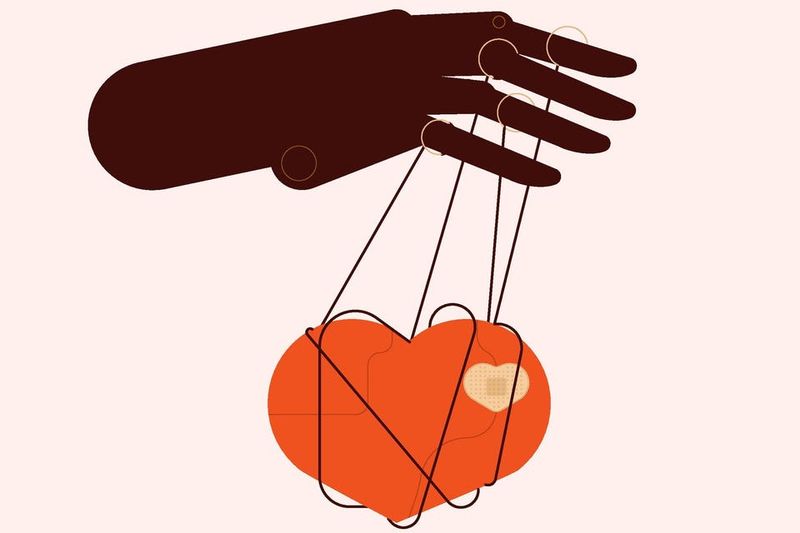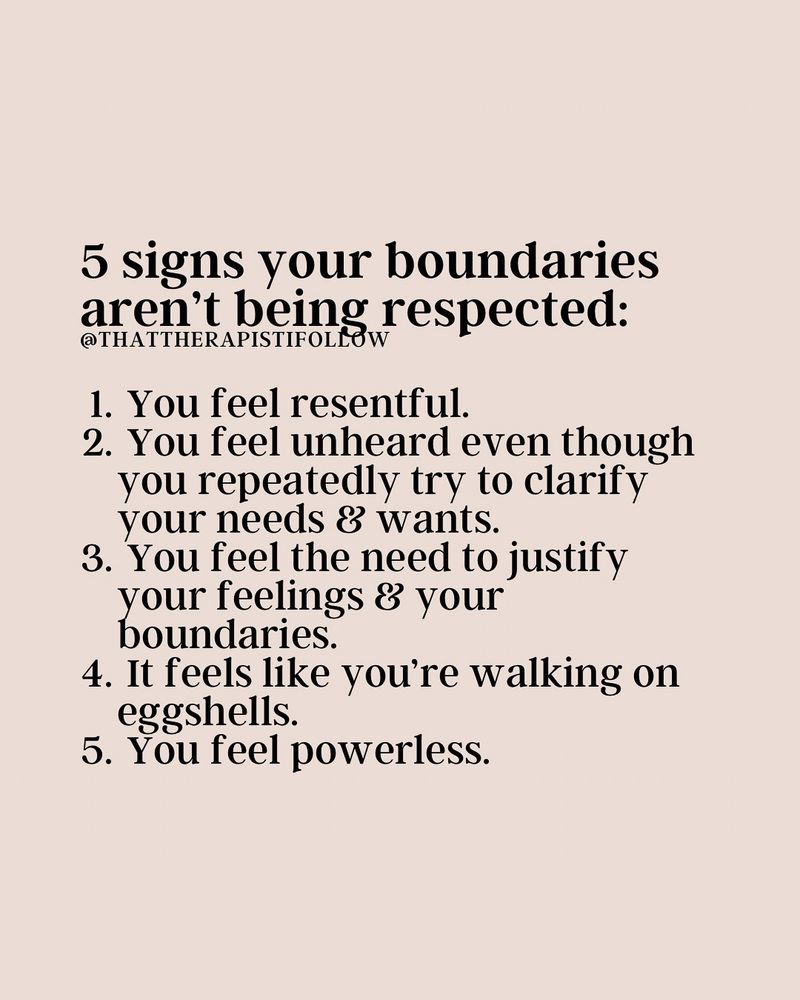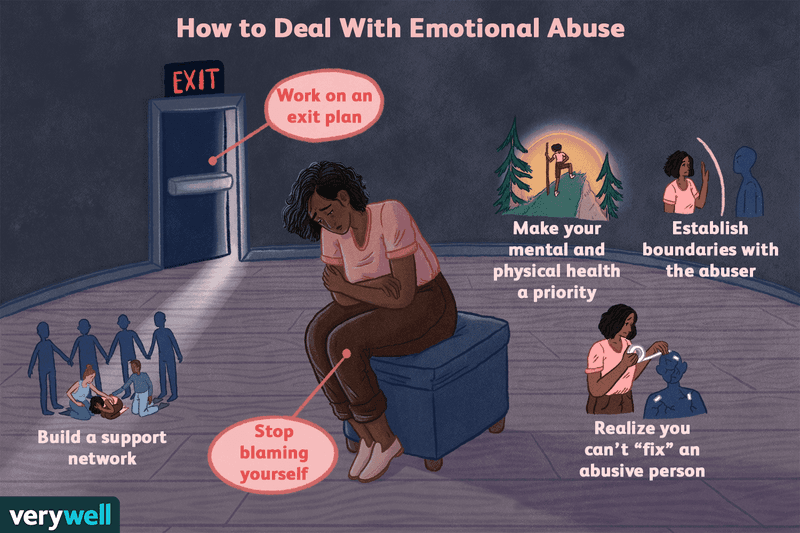15 Situations When Going No Contact Is The Healthiest Choice

Navigating relationships can be complex, especially when emotional boundaries are crossed. Sometimes, the healthiest choice is to go no contact, a decision that prioritizes your mental and emotional well-being.
Here are 15 situations where cutting ties isn’t cruel—it’s survival.
1. They twist every conversation into guilt

Every conversation feels like a trip into a guilt labyrinth, where you’re always the villain. Instead of sharing joy or even mundane life updates, you find yourself ensnared in webs of blame. This constant manipulation leaves you questioning your intentions and doubting your own feelings. It’s as if you’re constantly carrying a burden of guilt that isn’t yours to bear.
In such situations, maintaining contact can erode your self-esteem and distort your self-perception. You deserve interactions that uplift rather than degrade. When guilt is the primary currency of your conversations, it’s a sign to step back.
Choosing to go no contact isn’t about punishment; it’s about preserving your emotional health. When every interaction leaves you feeling worse rather than better, it’s time to reclaim your narrative. Embrace the silence as a form of self-care, a pause to find your true voice amidst the chaos.
2. You never feel safe sharing anything real

Sharing your authentic self feels impossible, as if you’re constantly hiding behind a mask. This lack of safety stifles your expression and growth, turning every interaction into a guarded dance of words.
When you can’t be yourself without fear of judgment or ridicule, the relationship ceases to be nurturing. This environment hinders your emotional development and fosters anxiety. You’re left questioning every word you say, wondering if it will be twisted or used against you later.
Going no contact allows you to reclaim your freedom to express without fear. It’s a chance to surround yourself with those who value and respect your authenticity. Silence, in this case, is not an absence but a space for healing and self-rediscovery, free from the shackles of judgment.
3. Apologies come only when they want something

In the realm of manipulation, apologies are merely tools rather than genuine expressions of remorse. You notice they only say “sorry” when it serves their needs, a transactional gesture devoid of true accountability. These hollow apologies are laced with ulterior motives, often paving the way for the next favor or concession they wish to extract.
This pattern chips away at trust, creating a landscape where sincerity is scarce. The apologies lose their meaning, leaving you feeling used and unappreciated. As you navigate this exchange, it becomes clear that genuine respect is absent, and the relationship feels more like a business transaction than a heartfelt connection.
Taking the step to go no contact empowers you to protect your emotional integrity. It’s an act of self-respect, drawing a line against insincerity. By stepping away, you preserve your dignity and open the door to relationships where apologies are heartfelt and meaningful.
4. You feel more exhausted after every interaction

Interactions that drain rather than energize signal a red flag in any relationship. You emerge from each encounter feeling like you’ve run a marathon, mentally and emotionally spent. Instead of the connection being a source of support and revitalization, it becomes a siphon, leaving you depleted.
The fatigue seeps into other areas of your life, impacting your enthusiasm for activities and even your overall mood. It’s as if the relationship is a black hole, consuming your energy and leaving nothing in return. This exhaustion isn’t merely physical; it’s a drain on your spirit.
Choosing to go no contact becomes a vital step toward restoring your energy reserves. It’s about seeking relationships that nourish rather than deplete. By stepping back, you reclaim your vitality and prioritize connections that bring joy and renewal into your life.
5. You’ve tried setting boundaries—and they treat it as betrayal

Setting boundaries is a fundamental part of healthy relationships, yet some perceive it as an act of war. When you attempt to assert your needs, they react with hostility or accusations of betrayal. Instead of respecting your space, they see your boundaries as obstacles to overcome or destroy.
This relentless siege on your autonomy leaves you feeling disrespected and unheard. It’s as if your needs and comfort are secondary to their desires, eroding the foundation of mutual respect. You’re left in a constant state of defense, battling to protect your sense of self.
No contact becomes an act of self-preservation, a shield against those who treat your boundaries as a challenge rather than a norm. It’s about fostering relationships where your space is respected and your voice is valued. By choosing silence, you choose to honor your worth and demand the respect you deserve.
6. They consistently deny your lived experience

Gaslighting is a destructive force, manifesting as the denial of your reality. They twist your words, rewrite events, and insist on a narrative that suits them, dismissing your truth in the process. This constant undermining chips away at your confidence, leaving you questioning your sanity.
Being told that your experiences are invalid creates a deep sense of alienation and self-doubt. It’s as if your voice has been silenced, your experiences erased. This emotional erasure is not only isolating but deeply damaging to your sense of self.
By going no contact, you reclaim your reality and protect your mental health. It’s a declaration that your experiences matter and demand to be heard. Silence becomes a powerful tool for self-affirmation, allowing you to reconnect with your truth and surround yourself with those who acknowledge your experiences.
7. They mock your growth or healing

Imagine striving to better yourself, only to be met with laughter or disdain. They mock your attempts to heal, belittling your progress and efforts. Instead of celebrating your achievements, they see your growth as a threat or a joke, diminishing your journey.
This ridicule can stunt your development, making you question the validity of your efforts and the value of your goals. It’s as if you’re fighting an uphill battle not just against your challenges, but against those who should support you. Their mockery echoes in your mind, casting doubt over your path.
Choosing no contact is about creating a safe space for growth. It’s a decision to shield your aspirations from those who seek to belittle them. By stepping away, you honor your journey and surround yourself with those who uplift and encourage, rather than undermine and ridicule.
8. Every call or visit leaves you emotionally spun out

The aftermath of every interaction feels like being caught in a whirlwind. Instead of feeling connected, you’re left disoriented and emotionally frazzled. It’s as though each call or visit launches a storm within, leaving chaos in its wake.
These encounters disturb your inner peace, triggering a cascade of emotions that are hard to process. The emotional turbulence affects your capacity to enjoy life, casting a shadow over your daily experiences.
Going no contact turns into a beacon of tranquility, offering respite from the emotional storms. It’s about regaining control over your emotional landscape and finding peace in the absence of turmoil. By stepping back, you choose serenity and clarity, making room for relationships that foster stability and comfort.
9. They only show up to stir chaos or control

For some, interactions are not about connection but manipulation, a stage for chaos or control. They appear in your life, not to support or understand, but to disrupt. Their presence feels like a tempest, constantly challenging your peace.
These encounters often leave you feeling like a puppet, your strings pulled to suit their whims. The chaos they bring is not accidental but deliberate, a tool for maintaining dominance or sowing confusion.
Choosing no contact is a stand against this manipulation. It’s about reclaiming your autonomy and refusing to be a participant in their drama. By walking away, you create a sanctuary free from their influence, where peace and control are yours to command. It’s an act of defiance that prioritizes your well-being and self-determination.
10. You’ve started questioning your worth after each encounter

Interactions that leave you doubting your value are deeply corrosive. Each encounter chips away at your self-esteem, planting seeds of doubt and insecurity. Instead of mutual respect, the relationship fosters a sense of inadequacy, as if you must prove your worth repeatedly.
This constant questioning is exhausting, an emotional toll that impacts every facet of your life. You’re left feeling less than, your confidence eroded by their subtle or overt criticisms.
Going no contact is a step towards rebuilding your self-worth. It’s a declaration that your value is inherent and not subject to another’s judgment. By stepping back, you protect your self-esteem and pave the way for relationships that affirm rather than diminish. It’s about embracing self-love and rejecting the narratives that undermine your confidence.
11. There’s a clear pattern of emotional abuse

When emotional abuse becomes a pattern, it’s time to reassess the relationship’s value. This abuse can manifest as constant criticism, manipulation, or control, creating an environment of fear and uncertainty. The pattern isn’t just a series of isolated incidents but a tapestry woven into your daily life.
Such a toxic environment erodes your sense of safety and well-being, becoming a constant source of stress and anxiety. You’re left navigating a minefield, constantly on alert for the next emotional landmine.
Going no contact becomes a lifeline, a necessary step to escape the cycle of abuse. It’s about choosing safety and healing over toxicity. By removing yourself from the equation, you invite peace and stability back into your life, fostering a space for recovery and self-discovery.
12. You’re not allowed to have your own narrative

In some relationships, your narrative is hijacked, rewritten to fit someone else’s story. You’re denied agency over your experiences, your history constantly revised or dismissed. This erasure is a subtle form of control, an attempt to reshape your identity.
Being denied your narrative is a violation of your autonomy, leaving you feeling invisible and misunderstood. It’s as if your life is a script written by another, your voice silenced in the process.
Choosing to go no contact is a reclaiming of your story. It’s about asserting your right to your own experiences and perspective. By stepping away, you embrace your narrative and surround yourself with those who honor and respect your journey. It’s a step towards authenticity and self-empowerment.
13. Your peace comes last—every time

Imagine being in a relationship where your peace is always an afterthought. Your needs and comfort are secondary, often sacrificed to maintain the status quo. Instead of being a sanctuary, the relationship becomes a battleground where your serenity is the first casualty.
This constant upheaval leaves you on edge, your sense of peace overshadowed by their demands or crises. It’s a draining dynamic that leaves little room for your well-being.
Choosing no contact becomes an act of self-prioritization. It’s about reclaiming your right to peace and creating a boundary that protects your tranquility. By stepping back, you prioritize your mental and emotional health, opening the door to relationships that cherish and nurture your peace.
14. They react to your pain with competition, not compassion

Instead of empathy, they engage in a one-upmanship, turning your struggles into a competition. This lack of compassion leaves you feeling isolated, as if your pain is a weakness to be exploited rather than a call for support.
Their response invalidates your feelings, replacing potential connection with rivalry. Instead of feeling understood, you’re left alone in your suffering, a stark contrast to the empathy you deserve.
Going no contact is about seeking relationships that offer genuine support and understanding. It’s a decision to surround yourself with those who respond to your pain with compassion, not competition. By stepping back, you affirm your need for empathy and care, choosing environments that nurture rather than challenge your emotional needs.
15. You feel like you’re parenting the relationship

Some relationships feel less like partnerships and more like parental roles. You’re constantly managing emotions, smoothing conflicts, and shouldering burdens that aren’t yours to carry. This unequal dynamic creates a sense of imbalance, where you’re always the caretaker.
The emotional labor involved is exhausting, leaving little room for your own needs or growth. It’s as if you’re trapped in a cycle of giving, with little reciprocity or acknowledgment.
Choosing no contact is about stepping away from this draining role. It’s a chance to seek equitable relationships, where responsibility and care are shared. By walking away, you reclaim your time, energy, and emotional resources, opening yourself up to connections that uplift and support.
